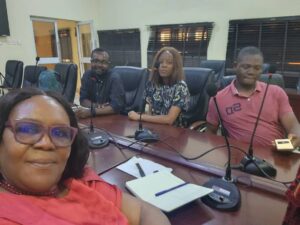Niger Delta
Lack Of Pipe-Borne Water Worries Calabar Residents

Some residents of Calabar have expressed worry over the lack of pipe borne water in the city in recent months, saying that they have resorted to boreholes as an alternative.
The residents expressed their concern over the situation in separate interviews with newsmen in the Cross River capital last Sunday.
They were more worried about the health implications of drinking water from boreholes now dug indiscriminately in all the nooks and crannies of the city.
They called on the Cross River Water Board Limited to restore the supply of pipe borne water in the city without delay.
Mrs Elizabeth Archibong, who owns a restaurant in the city, said the prolonged pipe borne water scarcity in Calabar was worrisome, describing it as strange.
She said: “ For over 10 years now, Calabar has not witnessed water scarcity for such a long period and it appears nothing is being done about it.
“Now I had to employ someone to fetch water for me from boreholes to be able to run my business.”
Mr Essien Udoh, a retired civil servant residing in Parliamentary area of the city, told journalists that taps in the area had been dry for over two months now.
“It is well over two months that we had pipe borne water last and it is a terrible situation. We have not experienced this kind of situation in Calabar for quite a long time now,” he said.
Udoh said that most of the residents had now been compelled to fetch water from private boreholes but expressed fears over the safety of water from such a source.
According to Mr Edem Ekpenyong, sinking of private boreholes has become the order of the day in Calabar.
“Calabar has actually changed. Some people now sink boreholes anyhow in their premises. Everywhere you turn to now you see people carrying jerry cans in search of water.
“This is not the Calabar that we were used to,” he said.
But when contacted on the development, Mr Emmanuel Orok, the Director in charge of Public Relations in the state Water Board, attributed the situation to lack of power supply.
Orok said the blackout had been on in the last four months.
“Some of the problem we have are natural, but we have started pumping water and very soon the situation will normalise,” he added.
Niger Delta
Rivers Begins, Supplemental Polio Vaccination, Morrow

The Rivers State Primary Healthcare Management Board (RSPHCMB) says it will commence Supplemental Immunization activities on Saturday, May 3, 2025, to vaccinate children from 0-5 years across the State.

The State Health Educator, Dr. Diana Babbo, who stated this during a sensitisation meeting with Media Advocate for Health, Rivers State, on the update of immunization exercise in Rivers State, said the National Immunization Plus Days (NIPDs) is a re-enforcement of the routine immunization at the health facilities.
According to her, it is aimed at boosting polio immunisation against the circulating variance of polio virus currently threatening the total eradication of polio in the country.

She further stated that there are four pillars of polio eradication, namely routine immunization (administered on babies in the health centre), supplemental immunization activity (supplements to boost the babies), surveillance (searching for children that have weakness in their legs or some oart of their bodies), and outbreak response.
The Health Educator noted that the Novel Oral Polio Vaccination Type 2 (NOPV 2) will be administered to children under the age of 0-5 years, which targets a specific polio still in existence in communities and capable of causing paralysis among the stated categories of children, despite the country being certified a polio-free nation.
Dr. Babbo further stated that this year’s NIPDs will address the high number of unresolved non-compliance cases in the State.
She debunked what she tagged a false rumour by mischief makers which claimed that the vaccines are responsible for the development of autism in children.
She said, “vaccines are not known to be responsible for the development of autism. We’re just hearing that. The truth is that one cannot know everything.
“That aspect that has been found, have we looked into other aspects, such as genetically modified foods, drinks, and milks that our children are taking?
“Have we also looked at genetic compatibility between couples before we now say vaccines are causing x, y, z things?
“Are we looking at the environment where these things are happening, what they are peculiar to?
“It must not be peculiar to all the families, there could be something also that’s happening around that we have not known. Research is evolving, let us not accuse our precious vaccines that have succeeded so far in my knowledge, to keep as many sicknesses at bay.
“The reason we do not have small pox in our world today, apart from the lab (a bio-lab) is because we vaccinated to the point where we were able to move small pox totally out of existence from human beings. We can succeed with that same pattern with all kinds of viruses”.
She stated that the connection between autism and vaccination could merely be coincidence.
Babbo, therefore, urged all parents, churches, and school owners to avail their children/wards the opportunity to be vaccinated against polio the stated exercise.
Sogbeba Dokubo
Niger Delta
Diri Recommits To Support For Security Agencies …Cautions AIG, Sacks Youth Exco
Bayelsa State Governor, Senator Douye Diri, has restated his administration’s commitment to providing more support to security agencies operating in the state.
He stated this on Tuesday when he received heads of security agencies, including Commander of the Joint Task Force, Operation Delta Safe (OPDS), Rear Admiral N.M. Madugu, Flag Officer Commanding Central Naval Command, Rear Admiral Ahmed Gaya, and the Assistant Inspector General of Police (AIG) in charge of Zone 16, Yenagoa, Tolani Alausa, in Government House, Yenagoa.
The Governor assured security agencies across board that his administration would collaborate with them to protect lives and property as well as critical national assets on land and the waterways by providing patrol vehicles, boats and other necessary logistics.
He informed the new OPDS Commander that the task force had a responsibility to protect critical national, state and community assets contributing not only to the daily oil production output for the federal government but also to development and growth of the state.
The Governor stressed that the partnership between the state government and the task force had ensured that crime rate in the state was reduced.
“As a government, we are working round the clock with the security agencies so that our people can sleep with their two eyes closed and also ensure that national assets are safe for the benefit of the people and the government.
“Often, it is misconstrued as though these assets are only for the federal government. Rather, they are for the state, communities and the federal government. So we must work hand-in-gloves to ensure they are safe.
“Therefore, it is our responsibility to always ensure that these critical national, state and community assets are kept safe”, he said.
Responding to the request of the Flag Officer Commanding Central Naval Command, Rear Admiral Ahmed Gaya, the Governor stated that he had signed the Certificate of Occupancy of the land allocated to the Nigerian Navy at the New Yenagoa and approved a secondary school at Toru-Ebeni in Sagbama Local Government Area of the state.
He said the State Government was waiting for the naval authorities to commence development of the land.
The new JTF Commander, Rear Admiral Madugu, stated that the visit was to formally introduce himself and to solicit the government’s support to achieve his aim of protecting the critical oil and gas facilities in his area of operation and fulfil the presidential mandate of increasing oil production to 2.5mbpd.
While promising to work with the Nigerian Police to maintain peace in the state, Diri admonished AIG Tolani to be repentant and be more professional in his duties having attained a top position in the force.
The Governor, who recalled the role Tolani played when he was Commissioner of Police in the state during the 2023 governorship election, said: “Let bygone be bygone and work according to your conscience. Ensure that you are repentant and do what is right. Your zone covers Bayelsa and Rivers states and let the interest of both states be uppermost on your mind.”
On disputes among community youth associations, the state’s helmsman wielded the big stick and announced the dissolution of such body in Famgbe Community in Yenagoa Local Government Area.
He directed the Commissioner for Youth Development, working with the Commissioner of Police, to ensure a proper election is held in the community.
Diri also warned that traditional rulers whose communities were embroiled in conflicts would be sanctioned.
“Every other feuding community, including Ogboinbiri, we are still watching you. I have told all traditional rulers, if you cannot ensure peace in your domain but waiting for my wrath to dangle on you, then both traditional rulers and youth bodies will be sacrificed”, Diri said.
Ariwera Ibibo-Howells,
Yenagoa
Niger Delta
Health Professions Not Superior To Others – Bayelsa Dep Gov
The Deputy Governor of Bayelsa State, Senator Lawrence Ewhrudjakpo, has said no profession in the health sector was superior to others, saying there was need for cooperation among workers in every health facility to achieve optimal results.
He stated this during a courtesy visit by the Bayelsa branch of the Association of Medical Laboratory Scientists of Nigeria (AMLSN) to his office in Government House, Yenagoa, on Tuesday.
He assured that a good number of certified and competent medical laboratory scientists, as well as other medical and health practitioners would be employed based on the needs assessment indices at government’s disposal in the ongoing civil service recruitment exercise.
While appreciating their contributions to quality healthcare service delivery, he said government was ready to collaborate with the Association and other critical stakeholders in the sector to make health services more affordable and accessible to people of the state.
Senator Ewhrudjakpo, in a statement by his Senior Special Assistant on Media, Mr. Doubara Atasi, said the current recruitment drive was aimed at addressing manpower needs in some critical sectors, including health, to improve service delivery in the state.
“We’re making progress in the health sector in Bayelsa. But we also admit that there is still much room for improvement.
“As you’re aware, applicants are applying to the state civil service, and some employment slots have been approved for Medical Doctors and Laboratory Scientists to be employed.
“We need competent and highly qualified personnel to be employed into the service to provide quality services.
“Every health worker has a role in health promotion. No profession in the health sector is superior to another. We are ready to collaborate with you to make health services more affordable and accessible to all Bayelsans”, he said.
Earlier in her presentation, the State Chairman of the AMLSN, Eunice Ayamaere Lelei, said there was need for government to employ more qualified laboratory scientists, and provide modern laboratory equipment in all its medical facilities across the state.
Lelei, who emphasized that laboratory scientists play a critical role in healthcare services in Nigeria, called for the implementation of the approved call duty allowance for members of the Association, and funding support for their Mandatory Professional Continuing Development programmes.
Ariwera Ibibo-Howells,
Yenagoa

